The magnificent beauty of the monarch butterfly
Not only possessing a beautiful body, the monarch butterfly is also one of the few insects capable of crossing the Atlantic Ocean.
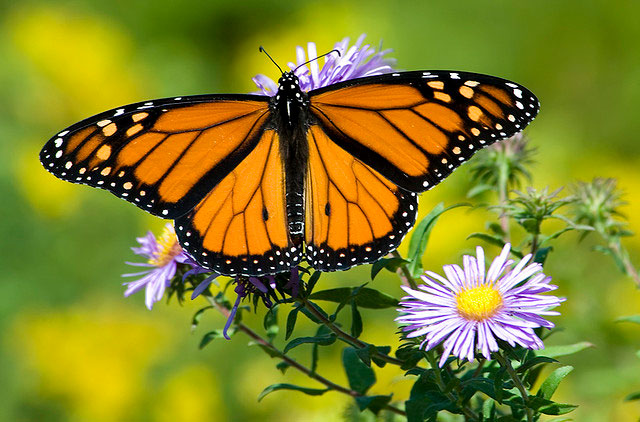
Monarch butterfly or monarch butterfly is the most famous butterfly species in the area
North America.Their scientific name is Danaus plexippus.
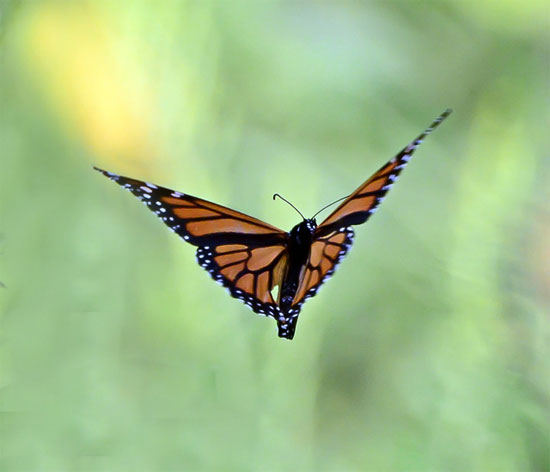
But they are also distributed in Australia and New Zealand.
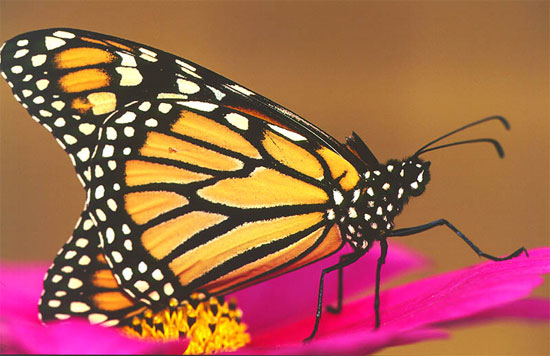
The wings of monarch butterflies have orange and black patterns.Length of wingspan from 8.9 to 10.2cm.
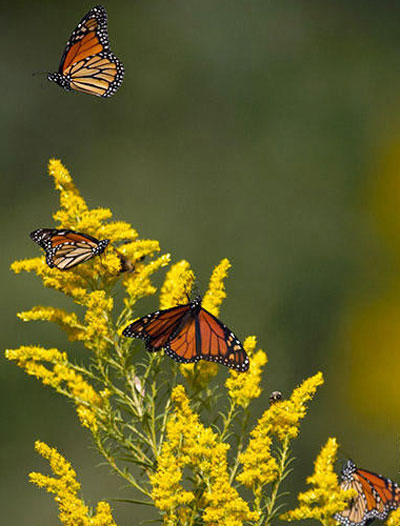
Every August, princess butterflies migrate from North America
the South.They return north in the spring.
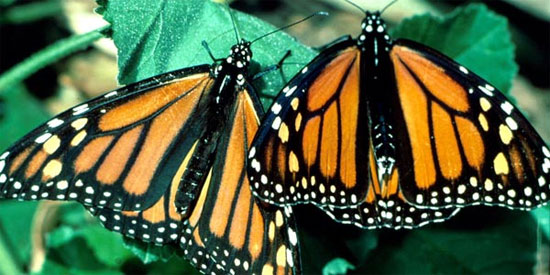
The butterfly on the wing of the butterfly is darker than the male butterfly.
The male butterfly body is slightly larger than the female butterfly.

Like many other insects, princess butterflies have 6 legs but they are
usually only move with 4 legs, because the front legs are close to the body.
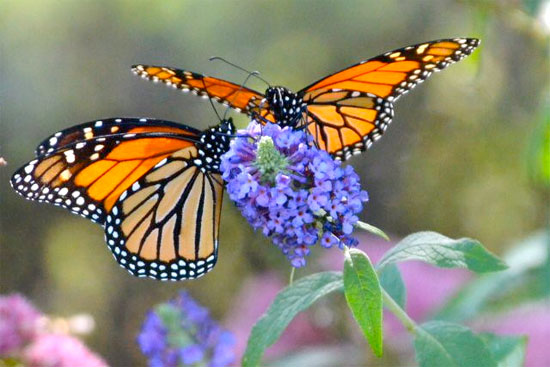
This is the only butterfly that migrates with both
south - north and north - south as birds.

But because the life of the monarch is too short, no individual lives
missed during the migration process. They both migrate and lay eggs and
new butterflies continue their father and mother's journey.

If a king of butterflies begins to migrate from south to north or
on the contrary, their grandchildren or grandchildren will complete the fight
the journey, which means that it takes three to four lives to reach the destination.

King butterflies are also a handful of insects capable of crossing the Atlantic Ocean.
- Life cycle of monarch butterfly
- New discoveries about the migration habits of monarch butterflies
- In the past year, thousands of butterflies have evaporated, but scientists do not know why
- Rare Monarch butterflies have new housing in Mexico
- Magic king butterfly valley in America
- Overwhelmed by the sight of billions of migratory monarchs
- The magnificent butterfly world
- Do you know where the butterfly's ear is?
- Science through great images
- The biological clock guides the princess butterfly
- Butterflies disguising themselves as tigers threaten enemies terribly
- 'Giant butterfly' was discovered in Malaysia
 The 11 most unique public toilets in the world
The 11 most unique public toilets in the world Explore the ghost town in Namibia
Explore the ghost town in Namibia Rare historical moments are 'colored', giving us a clearer view of the past
Rare historical moments are 'colored', giving us a clearer view of the past The world famous ghost ship
The world famous ghost ship Rare insect species at risk of extinction in Vietnam
Rare insect species at risk of extinction in Vietnam  Top 7 rarest butterflies in the world
Top 7 rarest butterflies in the world  Successfully artificially reproduced the rarest butterfly in the world
Successfully artificially reproduced the rarest butterfly in the world  King Butterfly - The famous North American butterfly is in danger of extinction
King Butterfly - The famous North American butterfly is in danger of extinction  Unique, unique butterfly-shaped house in Europe
Unique, unique butterfly-shaped house in Europe  The surprising truth about the image of 'ghost butterfly' flying through space was captured by the observatory
The surprising truth about the image of 'ghost butterfly' flying through space was captured by the observatory 